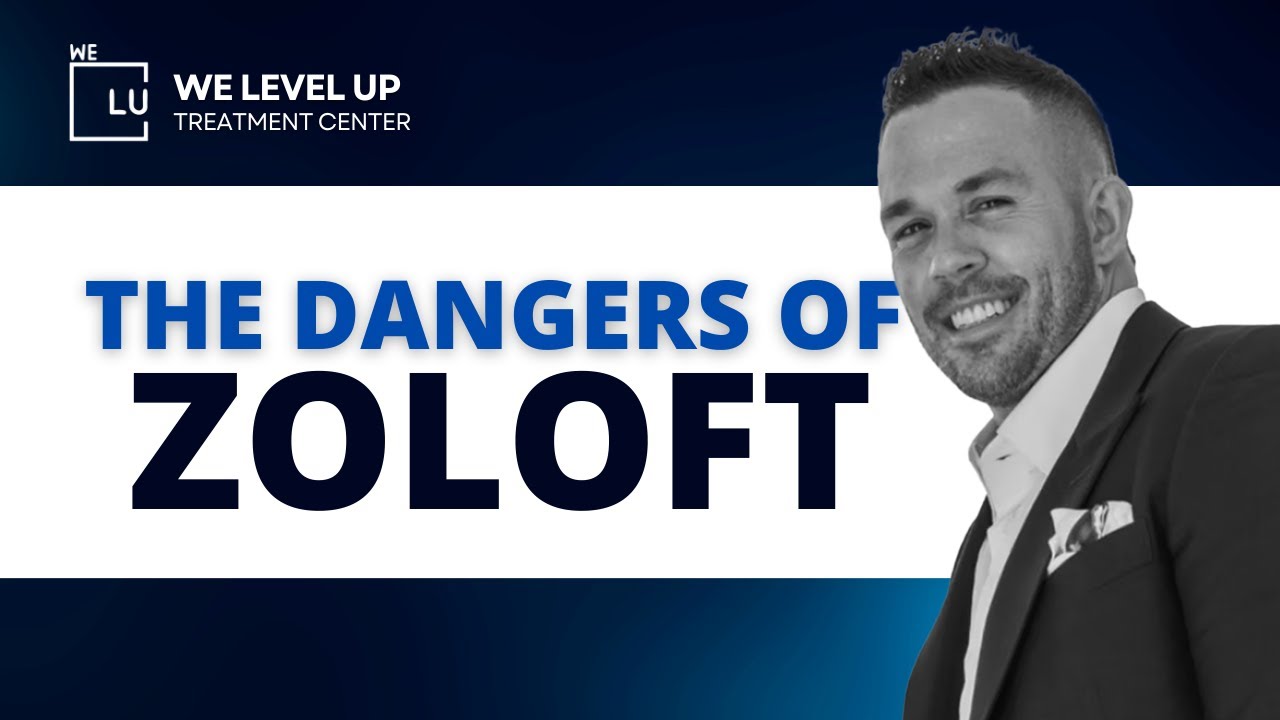Is Anxiety a Disability?
If your anxiety is hindering your ability to care for yourself, you can seek disability benefits, as anxiety is recognized as a disability. The government, through the Social Security Administration (SSA), may provide financial support if your anxiety significantly impairs your self-care. According to the ADA, schools and workplaces are required to accommodate your disorder. [1] So, what kind of anxiety accommodations can you expect?
In the workplace, increased flexibility is a typical arrangement. Working from home may relieve your symptoms, or you may be more efficient working part-time instead of a whole week. Some individuals benefit from additional leave time, whether for a mental health day or a therapy meeting. Even extra break time can make a big difference in the event of a trigger or anxiety episode. Employers can also provide valuable support systems.
Important Tip
Navigating the application process can be complex, and having a disability lawyer can be beneficial. They can assist with gathering necessary documents, guide you through the process, and help with appeals if needed, providing valuable support throughout the challenging journey of seeking disability benefits.
Anxiety and Addiction Co-occurring Disorder
The use of alcohol and drugs can contribute to the trigger or worsening of anxiety attacks. For instance, according to the Substance Abuse and Mental Health Services Administration (SAMHSA), a study revealed that stimulant abuse can lead to intensified feelings of paranoia and anxiety attacks. [2]
Help for addiction and anxiety is a crucial part of the We Level Up Texas dual diagnosis inpatient treatment center. Call us anytime for a free consultation and start reclaiming your life today!
5 Ways to Get Anxiety Disability
1. Evaluate Eligibility
Understand the eligibility criteria for anxiety-related disability benefits.
The SSA mentions [3] that for anxiety to qualify as a disability, you must have documentation of being diagnosed with an anxiety disorder, and three out of five of these symptoms present:
- Restlessness.
- Being easily tired.
- Trouble concentrating.
- Irritability.
- Muscle tension.
- Sleep disturbances.
The effects of anxiety extend beyond that of emotional functioning. Evidence suggests that anxiety is associated with functional limitations or “a restriction in or lack of ability to perform an activity because of impairment.” [4] This is according to research found in the National Center for Biotechnology Information. (NCBI)
2. Seek Professional Guidance
Consult a disability lawyer specializing in mental health cases. They can provide valuable recommendations, assist with the application process, and help gather necessary documentation.
3. Document Your Condition
Keep detailed records of your anxiety symptoms, medical treatments, and their impact on your daily life. This documentation will support your disability claim.
The most common symptoms of anxiety are:
- Excessive worry.
- Restlessness.
- Fatigue.
- Difficulty concentrating.
- Irritability.
- Muscle tension.
- Sleep disturbances (insomnia or excessive sleep).
- Racing thoughts.
- Trembling or shaking.
- Sweating excessively.
- Nausea or stomach issues.
- Dizziness or lightheadedness.
- Shortness of breath.
- Rapid heartbeat or palpitations.
- Chest pain or discomfort.
- Feeling on edge or jumpy.
- Avoidance of triggering situations.
- Difficulty making decisions.
- Fear of losing control.
- Feeling detached from oneself.
- Persistent feelings of dread or doom.
- Hypervigilance.
- Startling easily.
- Difficulty relaxing.
- Muscle aches or tension headaches.
- Changes in appetite.
- Perfectionism.
- Difficulty in social situations.
- Excessive self-consciousness.
- Panic attacks (sudden and intense episodes of fear or discomfort).
4. Apply for Social Security Disability Benefits
- Complete your application online. https://www.ssa.gov/benefits/disability/apply.html
- Call the SSA for support: toll-free telephone number 1-800-772-1213. If you are deaf or hard of hearing, call the SSA at TTY 1-800-325-0778.
- You can also visit your local Social Security office.

Skip To:
Learn More:
- How to Calm Anxiety Attacks? Symptoms, Causes, and Treatment
- Top 10 Tips on How to Reduce Anxiety Immediately
- Beta Blockers for Anxiety Benefits, Dangers, and Side Effects
- Separation Anxiety in Adults, Causes, Symptoms, and Treatment
- Does Alcohol Help Anxiety?
- Dangers of Mixing Anxiety Medication and Alcohol
- What is Sleep Anxiety?
- What to Know About Valium for Anxiety
- Alcohol and Anxiety Co-Occurring Disorders
- Mental Health Assessment for Mental Illness Treatment
- Dual Diagnosis Treatment
5. Appeal if Necessary
Most first-time claims receive a denial, and most claimants will file an appeal. A properly filed appeal prompts a hearing before an administrative judge. Many claimants receiving first-time denials for benefits obtain benefits upon appeal. However, successful claim appeals require navigation through complex hearings and appeals processes that require the legal expertise of an attorney. It often takes a couple of years from applying for benefits until an appeal hearing.
Three variables may explain the relationship between anxiety and disability:
- Physical activity.
- Benzodiazepine and psychotropic medication use.
- Lack of emotional support.
A critical confounding factor is the presence of depressive symptoms, which are often present with anxiety. However, depression is also a significant risk factor for physical disability.
Many individuals who struggle with anxiety attacks either seek clinical medication or self-medicate with alcohol or drugs. People who get prescriptions for their anxiety are less likely to develop substance use disorders, but often, the drugs that they get have high abuse potential, creating more risk.
If you’re struggling with anxiety disorders and substance abuse, get resources for treatment counseling that works. Start getting support with a free call to our mental health and addiction hotline.
Get Help. Get Better. Get Your Life Back.
Searching for Accredited Drug and Alcohol Rehab Centers Near You? We Level Up Texas Is Opening Soon!
Even if you have failed previously and relapsed, or are in the middle of a difficult crisis, we stand ready to support you. Our trusted behavioral health specialists will not give up on you. When you feel ready or just want someone to speak to about therapy alternatives to change your life call us. Even if we cannot assist you, we will lead you to wherever you can get support. There is no obligation. Call our network hotline today.
FREE Addiction Hotline – Call 24/7Is Generalized Anxiety Disorder a Disability?
A study published by the National Center for Biotechnology Information (NCBI) found that long-term disability was highest in individuals with social anxiety disorder and multiple anxiety disorders, followed by patients with generalized anxiety disorder. This means that various anxiety disorders have different disability levels and that the diagnostic distinction is essential for treatment focus. [5]
Is Social Anxiety a Disability?
More severe symptoms and more comorbidity are linked with chronic anxiety disorders. Therefore, long-term disability is more common in anxiety patients with chronic symptoms of anxiety. According to research published by the US National Center for Biotechnology Information (NCBI), disability is highest in social anxiety disorder and multiple anxiety disorder. Both anxiety attacks and avoidance behavior are associated with higher disability levels. [6]
Anxiety VA Rating
Anxiety disorders can be rated at 0%, 10%, 30%, 50%, 70%, or 100% based on the severity, recurrence, and frequency of your symptoms. The more often you experience anxiety attacks, the higher your rating could be.
The Veterans Affairs uses your disability rating to determine how much disability compensation you’ll get each month and your eligibility for other VA benefits. [7]
Can I Get Disability for Anxiety and Depression?
If you cannot work due to symptoms of anxiety or depression, it may be possible to secure disability benefits. If stress and depression are disrupting your daily life functioning or if someone experiences symptoms of anxiety and depressive disorders, you can consult a healthcare professional to explore coping methods and treatment options. Remember, you must have a diagnosis to apply for disability benefits.
Check your insurance coverage for mental health services, seek recommendations from your primary care doctor, or consult with We Level Up Texas rehab healthcare professionals. A thorough mental health examination determines opportunities for treatment. Meeting with mental health counselors and medical care providers means admission to behavioral therapy and medication treatment. Suitable treatment leads to change for better, more restorative living. This is all possible at our dual diagnosis rehab center in Texas.
The Connection Between Addiction and Anxiety
Recognizing addiction as a mental disorder adds complexity to the connection between substance abuse and mental health issues like anxiety. Unfortunately, many treatment centers lack expertise handling dual-diagnosed cases, often treating these conditions separately or neglecting them altogether.
Substance abuse might result from attempts to self-medicate mental health problems, such as anxiety, without a proper diagnosis. This self-medication can lead to dependency and addiction wildly when undiagnosed mental disorders coexist. Untreated dual diagnoses can exacerbate drug abuse, with some substances triggering psychotic attacks that may persist. Addressing anxiety disorders is crucial not only for understanding the roots of substance abuse but also due to the biochemical imbalances that contribute to physical dependence, making a comprehensive approach beyond just behavioral therapy essential for effective treatment.
If you’re seeking assistance with your rehab journey, reach out to a We Level Up Texas treatment professional today—your call is free and confidential.
Opening Soon! First-Class Facilities & Amenities
World-Class High-Quality Addiction & Mental Health Rehabilitation Treatment
Coming Soon! Rehab Centers TourRenowned Addiction Centers. Serene Private Facilities. Inpatient Rehab Programs Vary.
FREE Addiction Hotline – Call 24/7Proven recovery success experience, backed by a Team with History of:
15+
Years of Unified Experience
100s
5-Star Reviews Across Our Centers
10K
Recovery Success Stories Across Our Network
- Low Patient to Therapist Ratio
- Onsite Medical Detox Center
- Comprehensive Dual-Diagnosis Treatment
- Complimentary Family & Alumni Programs
- Coaching, Recovery & Personal Development Events
We Level Up Texas Dual Diagnosis Rehab Center for Anxiety and Addiction
The symptoms of the multiple disorders that can occur alongside addiction can present complex and similar symptoms. Accurate diagnosis requires a highly trained professional team with years of experience.
Many psychiatric disorders, like alcohol use disorder or substance abuse, are better treated when you fully understand what you are suffering from. Understanding your anxiety, PTSD, depression, and other disorders and their effects on you goes a long way to realizing your own treatment needs.
Here at We Level Up Texas Treatment Center, most dual diagnosis programs begin with a medical detox process to remove the physical dependency on any drugs or alcohol, then a residency program. The inpatient program can last up to 30 days and is designed to provide intensive, focused therapy in a controlled setting to help you manage your condition and give you the valuable tools necessary to overcome the cravings and face the daily challenges of life.

Get a free rehab insurance check without any obligation. The free rehab insurance check can help you explore several treatment options.
Top 6 Non-Addictive Anti-Anxiety Medications, Side Effects, and Things You Should Know | Informative Video
Start a New Life
Begin with a free call to an addiction & behavioral health treatment advisor. Learn more about our dual-diagnosis programs. The We Level Up treatment center network delivers recovery programs that vary by each treatment facility. Call to learn more.
- Personalized Care
- Caring Accountable Staff
- World-class Amenities
- Licensed & Accredited
- Renowned w/ 100s 5-Star Reviews
We’ll Call You
Search We Level Up Texas Is Anxiety a Disability? Detox Topics and Resources
Sources
- Can you get disability for anxiety? Accommodations for Employees with Mental Health Conditions – Office of Disability Employment Policy
- The Key Substance Use and Mental Health Indicators in the United States: Results from the 2021 National Survey on Drug Use and Health – Substance Abuse and Mental Health Services Administration (SAMHSA)
- Is anxiety considered a disability? Disability Evaluation Under Social Security – https://www.ssa.gov/disability/professionals/bluebook/12.00-MentalDisorders-Adult.htm
- Is anxiety a disability? Brenes GA, Guralnik JM, Williamson JD, Fried LP, Simpson C, Simonsick EM, Penninx BW. The influence of anxiety on the progression of disability. J Am Geriatr Soc. 2005 Jan;53(1):34-9. Doi: 10.1111/j.1532-5415.2005.53007.x. PMID: 15667373; PMCID: PMC1343490.
- Hendriks SM, Spijker J, Licht CM, Beekman AT, Hardeveld F, de Graaf R, Batelaan NM, Penninx BW. Disability in anxiety disorders. J Affect Disord. 2014 Sep;166:227-33. Doi: 10.1016/j.jad.2014.05.006. Epub 2014 May 10. PMID: 25012435.
- Disability in anxiety disorders – National Center for Biotechnology Information (NCBI)
- VA rating for anxiety: About VA Disability Ratings – Veterans Affairs (.gov) Anxiety VA Rating and Importance.
- Substance Use and Co-Occurring Mental Disorders – National Institute of Mental Health (NIMH)
- Chand SP, Marwaha R. Anxiety. [Updated 2023 Apr 24]. In: StatPearls [Internet]. Treasure Island (FL): StatPearls Publishing; 2023 Jan-. Available from: https://www.ncbi.nlm.nih.gov/books/NBK470361/
- Cackovic C, Nazir S, Marwaha R. Panic Disorder. [Updated 2023 Aug 6]. In: StatPearls [Internet]. Treasure Island (FL): StatPearls Publishing; 2023 Jan-. Available from: https://www.ncbi.nlm.nih.gov/books/NBK430973/







